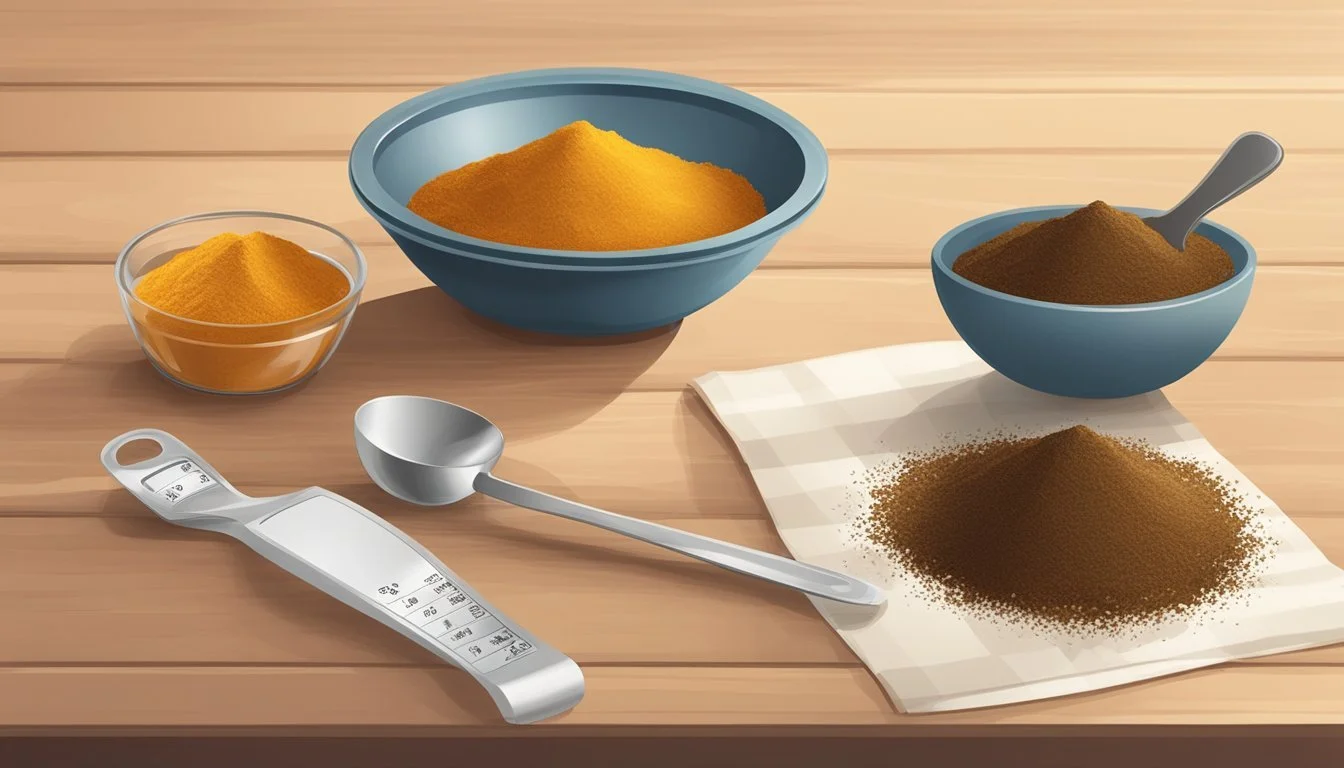Can Diabetics Eat Dried Fruit Powders (e.g., Date Powder)?
Unpacking the Facts
Living with diabetes often means carefully considering every dietary choice. For those wondering about the inclusion of dried fruit powders such as date powder in their diet, it’s essential to be informed. While dried fruits offer vitamins, minerals, fiber, and antioxidants, consuming dried fruit powders can impact blood glucose levels due to their concentrated carbohydrate content.
Date powder, derived from the sweet, fleshy fruit of the date palm, can be particularly tricky. In moderation, this nutritious option can be enjoyed by people with diabetes without significant negative effects on their blood sugar levels. Balancing the intake of such foods within a diabetic diet requires an understanding of their carbohydrate content and portion control.
Healthcare professionals often advise moderation and mindful consumption when incorporating dried fruit powders into a diabetic diet. Achieving a balanced approach helps manage blood sugar levels while still enjoying the benefits of these nutrient-dense foods.
Understanding Diabetes and Nutritional Needs
Individuals with diabetes need to carefully manage their diet to regulate blood sugar levels. This involves monitoring carbohydrate intake, balancing macronutrients, and focusing on foods that support blood glucose control.
The Role of Carbohydrates in Diabetes Management
Carbohydrates directly impact blood glucose levels. They are broken down into glucose, which enters the bloodstream and requires insulin for absorption into cells.
For diabetics, it's essential to control the type and amount of carbohydrates consumed. Simple carbs from sugary foods can cause rapid spikes in blood sugar, while complex carbs found in whole grains, legumes, and vegetables provide a slower, more stable release of glucose.
Fiber, a type of carbohydrate, is particularly beneficial. It slows glucose absorption and can improve glycemic control. For people with diabetes, including high-fiber foods such as fruits, vegetables, and whole grains in their diet is advisable.
Blood Sugar Regulation and Insulin Response
Blood sugar regulation is a primary concern for diabetics, as their bodies either do not produce enough insulin or cannot use it effectively. Insulin helps cells absorb glucose from the blood.
A balanced diet helps in maintaining stable blood glucose levels. Foods with a low glycemic index (GI) release glucose slowly and steadily, which is beneficial for blood sugar management.
Proteins and healthy fats do not spike blood sugar as dramatically as carbohydrates do. Including lean proteins like chicken, fish, and plant-based proteins, as well as healthy fats from sources such as avocados and nuts, is beneficial.
Key Nutrients for Diabetic Diets
Diabetics need to ensure they get adequate vitamins and minerals to support overall health. Magnesium, found in nuts, seeds, and whole grains, plays a role in insulin sensitivity.
Chromium, found in broccoli, barley, and oats, can help with glucose metabolism. Antioxidants from sources like berries and leafy greens may also reduce oxidative stress linked to high blood sugar levels.
Incorporating a varied diet rich in key nutrients supports better management of diabetes. Regular monitoring and balancing nutrient intake according to individual needs are vital for maintaining optimal health.
Dried Fruit Powders vs. Fresh Fruits
Dried fruit powders, such as date powder, offer some unique benefits and drawbacks compared to fresh fruits. This section breaks down the nutritional aspects, glycemic index variations, and advantages specific to dried fruit powders.
Nutritional Comparisons
Dried fruit powders are often rich in vitamins, minerals, and dietary fiber. For example, date powder retains much of the iron, potassium, and magnesium found in fresh dates. However, because the water is removed, the sugar content becomes more concentrated.
In contrast, fresh fruits provide hydration due to their high water content, which can make them more filling. Fresh fruits generally have lower calorie density per gram compared to dried fruit powders.
While both forms have their benefits, fresh fruits are often better for those seeking lower calorie, lower sugar options, whereas dried fruit powders offer a concentrated source of nutrition.
Glycemic Index Variations
The glycemic index (GI) measures how quickly foods raise blood glucose levels. Fresh fruits typically have a lower GI because their high water content and dietary fiber slow down sugar absorption.
Dried fruit powders like date powder have a higher GI due to the lack of water, which can cause quicker spikes in blood sugar. For example, fresh dates have a lower glycemic index compared to their powdered form.
Choosing between fresh and dried fruit powders may depend on blood sugar management needs. Fresh fruits generally have a slower impact on blood glucose levels, making them more suitable for diabetics.
Advantages of Dried Fruit Powders
Dried fruit powders offer extended shelf life and convenience. They do not spoil as quickly as fresh fruits and can be stored for longer periods without refrigeration. This makes them a practical option for incorporation into various recipes and meal plans.
They are also easily portable and ideal for adding nutritional value to smoothies, baked goods, and other dishes. Dried fruit powders provide a consistent quality of nutrition year-round, regardless of the season.
Incorporating dried fruit powders like date powder can provide a reliable source of vitamins, minerals, and fiber, especially in regions where fresh fruits are less available.
Health Benefits and Risks of Dried Fruit Powders
Dried fruit powders like date powder offer various health benefits, including high vitamin and mineral content. However, there are potential risks, such as high sugar content and the impact on blood sugar levels, particularly for diabetics.
Fiber Content and Blood Sugar Control
Dried fruit powders contain substantial amounts of dietary fiber, which can aid in blood sugar control. Fiber slows down the absorption of sugar into the bloodstream, which helps prevent spikes in blood sugar levels.
Soluble fiber, found in dried fruit powders, can also help manage cholesterol levels. Insoluble fiber improves digestive health, reducing the risk of constipation. Phytochemicals in fiber-rich foods have additional health benefits, including anti-inflammatory properties.
However, the fiber content may vary depending on the specific fruit used to make the powder.
Vitamin and Mineral Content
Dried fruit powders are rich in vitamins and minerals such as potassium, magnesium, calcium, and iron. These nutrients support various bodily functions, including blood pressure regulation and bone health.
For instance, potassium helps balance electrolytes and reduces hypertension risk. Magnesium and calcium are essential for bone strength and muscle function.
Vitamins like A and C found in some dried fruit powders contribute to immune health and skin integrity. Despite these benefits, diabetics should balance these nutritional gains against the risks related to sugar content.
Potential Risks and Considerations
One significant risk of dried fruit powders is their high sugar content. During the drying process, the natural sugars become concentrated, making it easy to consume large amounts of sugar in small servings.
This can lead to blood sugar spikes, making it challenging for diabetics to manage their condition. Additionally, some dried fruit powders may contain added sugars that further increase the sugar load.
Consuming these powders can also contribute to weight gain and obesity if not consumed in moderation. It's crucial for diabetics to check the labels for added sugars and portion sizes to mitigate these risks.
Incorporating Dried Fruit Powders into a Diabetic Diet
Dried fruit powders, such as date powder, can be part of a diabetic diet with proper portion control, strategic pairing with other foods, and alternative sweetening options.
Portion Control and Moderation
Portion control is crucial when incorporating dried fruit powders into a diabetic diet. Due to their concentrated sugar content, even small amounts can impact blood sugar levels. Measuring servings accurately and limiting intake to fit within the daily carbohydrate allowance is essential.
Tips for portion control:
Use measuring spoons or a kitchen scale.
Plan meals and snacks to include a balanced amount of carbohydrates, protein, and fat.
Track carbohydrate intake using food diary apps or tools.
Pairing with Other Foods
Pairing dried fruit powders with protein, fiber, and healthy fats can help mitigate blood sugar spikes. Combining these powders with nuts, seeds, or vegetables can slow carbohydrate digestion and absorption, promoting stable blood sugar levels.
Examples:
Add date powder to a yogurt and nut parfait.
Sprinkle fruit powder on a salad with leafy greens and seeds.
Mix into smoothies with protein powders and fiber-rich vegetables like spinach or kale.
Alternative Options for Sweetening
For those seeking to lower their carbohydrate intake, there are alternative sweetening options that can substitute for dried fruit powders. Natural sweeteners with a lower glycemic index, like stevia or monk fruit, provide sweetness without significantly raising blood sugar levels.
Substitution ideas:
Use stevia instead of date powder in beverages.
Sweeten baked goods with monk fruit.
Combine a small amount of dried fruit powder with a low-GI sweetener to balance flavor and impact on blood sugar.
Specific Types of Dried Fruit Powders
Different dried fruit powders offer unique benefits and potential drawbacks for individuals with diabetes, including variations in fiber content, natural sugars, and essential nutrients. Each powder, derived from specific fruits, also impacts blood sugar levels distinctly.
Date Powder
Date powder is made from dried and ground dates. It is naturally sweet and often used as a sugar substitute. Dates are high in natural sugars, which can cause rapid spikes in blood sugar levels. However, they also contain dietary fiber, which helps moderate this effect to some extent. Potassium, magnesium, and iron are other essential nutrients present in date powder.
People with diabetes should use date powder sparingly. Despite its nutrient content, the high concentration of sugars necessitates careful portion control.
Prune Powder
Prune powder comes from dried prunes, known for their digestive benefits due to high fiber content. Prunes help in maintaining steady blood sugar levels through their fibers' slow digestion process. Prune powder also boasts significant amounts of vitamins and minerals like potassium and iron. It has a lower glycemic index compared to other dried fruit powders.
The use of prune powder can be beneficial for blood glucose management, but moderation remains key due to the natural sugars present.
Fig and Apricot Powders
Fig powder, derived from ground dried figs, is rich in fiber, which helps regulate blood sugar levels. Figs also contain antioxidants, calcium, and magnesium, contributing to overall health. However, high sugar content in figs means it should be consumed in controlled amounts.
Apricot powder is made from dried apricots and is another fiber-rich option. Apricots are packed with vitamin A, potassium, and antioxidants. Though they have moderate sugar levels, apricot powder can fit into a diabetic diet if used judiciously. Both fig and apricot powders should be used in small quantities, aligned with overall carbohydrate management for diabetes.
Scientific Research and Recommendations
Current scientific research offers valuable insights into the impact of dried fruit powders, such as date powder, on individuals with diabetes. Key areas of focus include clinical trials examining glycemic control and expert guidelines that offer dietary recommendations for diabetics.
Clinical Trials on Diabetes and Dried Fruit Consumption
Several clinical trials have evaluated the glycemic effects of dried fruits, including date powder, on individuals with diabetes. These studies often measure postprandial blood glucose levels and HbA1c to assess long-term glycemic control.
Dried fruits like dates generally have a low to medium glycemic index (GI), indicating a moderate effect on blood sugar levels. Trials have demonstrated that moderate consumption can help manage post-meal glucose spikes without significantly raising HbA1c levels. Researchers found that dried fruits can act as an anti-diabetic food due to their high fiber and antioxidant content, which helps in regulating blood glucose levels.
Expert Guidelines and Recommendations
Certified diabetes educators and dietitians offer clear guidelines on the consumption of dried fruit powders for individuals with diabetes. Kim Rose, RDN, emphasizes that while dried fruits provide essential nutrients such as fiber, vitamins, and minerals, they must be consumed in moderation due to their concentrated natural sugars.
Experts recommend including dried fruit powders like date powder in a balanced diet but advise monitoring portion sizes. Incorporating these foods into meals that contain protein or healthy fats can also help minimize blood glucose spikes.
Overall, maintaining a balanced diet with careful portion control of dried fruit powders can help manage and potentially improve diabetes outcomes.
Conclusion
Dried fruit powders, like date powder, offer a concentrated source of nutrients, making them an enticing option for individuals managing diabetes.
The glycemic index (GI) of various dried fruits can affect blood sugar levels differently. Dates have a moderate GI, while dried apples and prunes have lower GIs, making them better choices.
Incorporating dried fruit powders into a diabetic-friendly diet requires careful consideration. Portion control is critical due to the concentrated sugar content.
Benefits:
Nutrient Density: High in vitamins and minerals.
Fiber: Aids in digestion and blood sugar control.
Potential Risks:
Caloric Density: Can lead to overconsumption.
Sugar Content: Impact on blood sugar levels.
Combining dried fruit powders with high-fiber foods and proteins can help moderate blood sugar spikes.
Recommendations
Consult Healthcare Provider: Always tailor dietary choices to individual health needs.
Monitor Blood Sugar: Regular checks to avoid complications associated with diabetes.
This information underscores the importance of cautious, informed dietary choices for those with diabetes.




